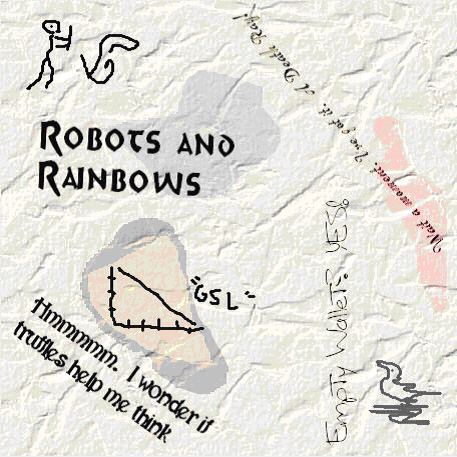
 Yes, a first for us here at "Make me a Commentator!!!" We are presenting an actual Economic theory.
Yes, a first for us here at "Make me a Commentator!!!" We are presenting an actual Economic theory.
I've been doing some research on Supply
Side Economics, and came across this passage,
"So where did the supply-side ideas actually come from? From
Laffer and Bartley, developed over a series of dinner
conversations at Michael 1, a famous restaurant near Wall Street. It was
here, scribbling on napkins, that Wanniski showed
Bartley the magical effects of tax cuts."
So I decided I would put this method into
action. I gathered a supply of dinner napkins and headed to a local restaurant,
where they informed me they had dinner napkins and I was not
allowed to bring mine in. Temporarily foiled I went in and enjoyed a
nice dinner. After getting home from the restaurant I
discovered something very interesting. I had less money than I had had before
paying for my dinner. The money in my wallet had significantly decreased.
Well I was so
intrigued by this discovery I determined to
immediately put it to the test. So I got in my car and
drove to a different restaurant to see if the principle would hold. After
enjoying a very nice expensive dinner (involving truffles I think(ed.
Note.† The photo above is the napkin from
this second dinner.), I went out to my car and checked my wallet. Once again it was substantially emptier than it had been before
dinner. Thus I postulated what I call "Empty
Wallet Economics." The first postulate of Empty Wallet Economics is that
"If you spend money, you will have less money."
I tested my
theory in a variety of ways, buying expensive products, and books and CD's and
so on, as well as eating out regularly, and I determined that my first
postulate was entirely correct. I also developed a secondary postulate of my
theory, which is "If you don't pay your electricity bill, you will be in
the dark." More on this later.
But getting back to my key postulate,
"If you spend money, you will have less money," I graphed it to get a
general feel for how this principle would apply. I took as my base a wallet
with $10.00 in it, and went out and bought various objects. I graphed the
results below, in what I am sure will take it's place
alongside the famous "Laffer Curve."

As you can see
the more money I spent the less money I had, until I
had spent the entire $10.00. This clearly has micro-economic applications; if
you like paying rent, make sure not to spend too much money.
How does
"Empty Wallet Economics" apply to national policy? Well it would
suggest that if the United States Government has a limited amount of money to
spend accomplishing it's tasks, then it needs to
balance that money carefully. If the United States, for example, were to
continue spending a lot of money domestically while engaging in an ongoing war
against terrorism, while simultaneously giving away it's income in the form of
tax breaks, well, it might not have enough money at the end of the day to
accomplish its goals.
One way around
this is to borrow money. We all know about credit cards and
how they can extend the spending power of an empty wallet. Well the
Government has similar mechanisms, but like credit cards
they are problematic.
Another possibility is to cut social spending dramatically. Let's be blunt--President Bush and other conservatives would love to see this. They know, as we all do, that shutting down school lunch programs, or Head Start, or the Environmental Protection Agency (to name three programs that receive federal money) would be horribly unpopular. On the other hand lowering taxes is very popular. So instead of openly admitting their plans to shut down these programs, they have adopted a "fait accompli" strategy. They lower taxes and slowly starve those programs to death. Easy, efficient, and largely fool proof. What Democratic candidate for anything is going to talk openly about raising taxes?
Not
very many.
Later that same Decade
Well I wrote that above on
The one
part I didnít go into as much as I should have was why itís problematic for the
Government to pull out itís plastic and charge
it.† Hereís
why.† There is in
So what
happens if the
Like it or
not, Credit often drives the economy.† If
you want to buy a house or build a car or start a
small business, it is likely that you will need credit to make it.† And if the people who make houses or who make
cars or who would work in small businesses, well, without credit thereís less
work for them to do and so less of them are employed.†
And thatís why itís problematic for the Government to go heavily in
debt.†††